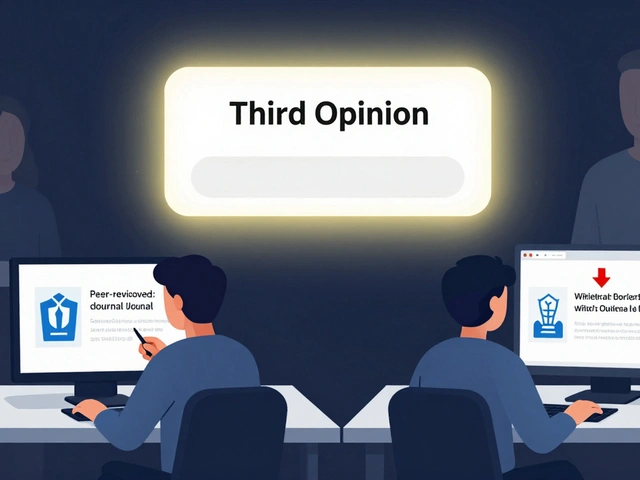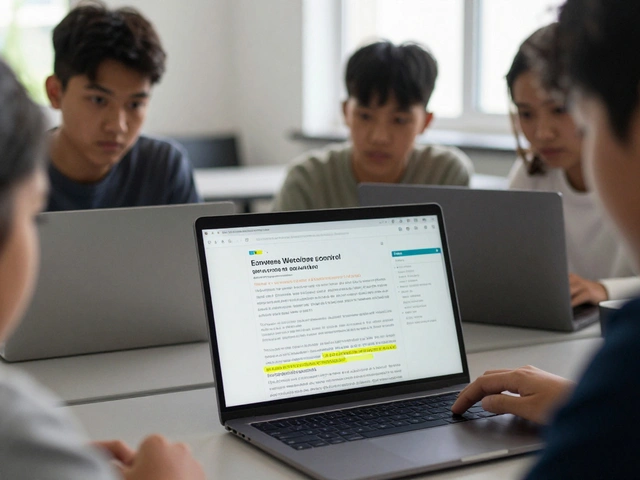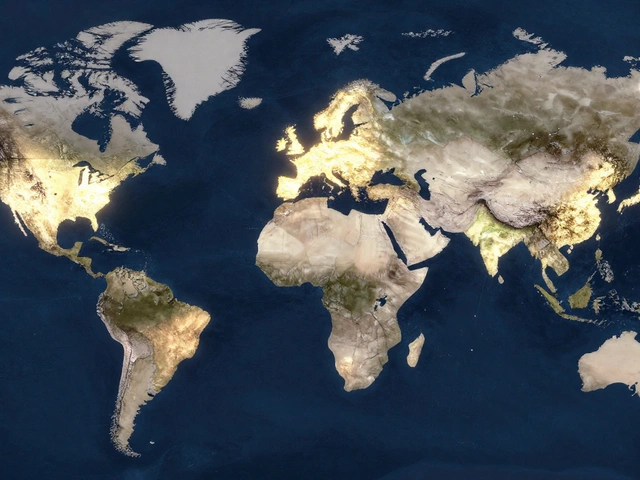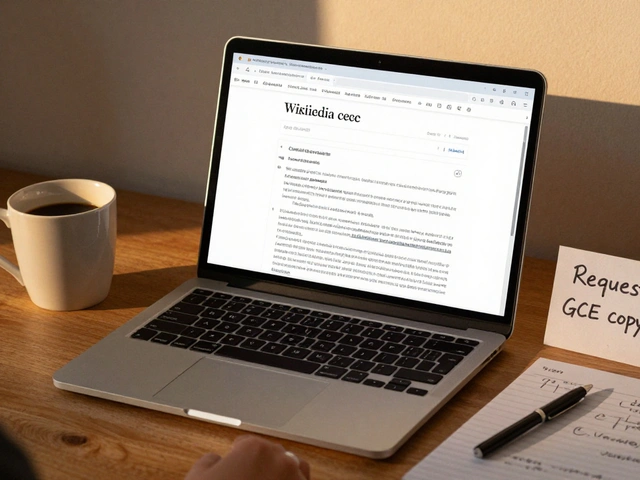
When you search for news about your town on Wikipedia, you expect it to be accurate. But who writes those local stories? And can you really trust them? The truth is, Wikipedia’s local news coverage varies wildly depending on where you live. In some places, it’s detailed, up-to-date, and well-sourced. In others, it’s outdated, incomplete, or missing entirely. This isn’t about Wikipedia being broken-it’s about how local journalism works, or doesn’t work, in different parts of the world.
How Wikipedia Picks Local News
Wikipedia doesn’t generate its own news. It relies on existing reports from verified media outlets. For a local event to make it onto Wikipedia, it needs to be covered by a reputable source-like a newspaper, radio station, or trusted online news site. That’s the rule. But here’s the catch: not every town has a local newspaper anymore. Over 2,000 U.S. communities lost their newspapers between 2004 and 2024, according to the University of North Carolina’s Local News Initiative. That means thousands of towns now have no official news outlet to cite.
Without a local paper, Wikipedia editors have nothing to link to. So they skip the story. Or worse-they rely on a blog, a Facebook post, or a press release from a city council. Those aren’t reliable sources under Wikipedia’s guidelines. But sometimes, they’re the only options left. That’s why you’ll find detailed pages about small-town festivals in Vermont but almost nothing about similar events in rural Mississippi.
Regional Gaps in Coverage
Look at the difference between urban and rural areas. In cities like Chicago or Atlanta, Wikipedia has dozens of articles about local government, school board meetings, and neighborhood developments-all backed by local TV stations, The Chicago Tribune, or The Atlanta Journal-Constitution. But in rural counties in Alabama, Oklahoma, or Montana, you’ll often find only a basic infobox with population numbers and a map. No recent events. No obituaries of local leaders. No coverage of zoning changes or water shortages.
This isn’t random. It’s tied to media deserts. A 2023 report from the Pew Research Center found that 70% of U.S. counties with populations under 25,000 have no daily newspaper. Many of these areas also lack local TV bureaus or radio stations with regular news teams. Without those outlets, Wikipedia can’t legally cite anything. And without citations, Wikipedia editors remove content. So the information disappears-not because it’s unimportant, but because there’s no trusted source to prove it happened.
Global Differences Are Even Starker
The problem isn’t just in the U.S. In India, Wikipedia has deep coverage of local news in major cities like Bangalore and Mumbai, thanks to hundreds of regional language newspapers and digital outlets. But in rural Bihar or Jharkhand, where print media has collapsed and internet access is spotty, Wikipedia pages for towns often haven’t been updated in years. The same pattern shows up in Brazil: São Paulo has detailed, constantly updated pages. Small towns in the Amazon basin? Often just a one-line entry.
In countries with strong public broadcasting-like Germany or Japan-Wikipedia local pages are more reliable because regional ARD or NHK outlets consistently report on municipal events. But in places with weak press freedom or limited media infrastructure, like parts of Africa or Southeast Asia, Wikipedia’s local coverage is patchy at best. Editors there often rely on government press releases, which aren’t independent sources. That creates a dangerous blind spot: events that matter to locals get erased because they’re not covered by outlets that Wikipedia considers credible.
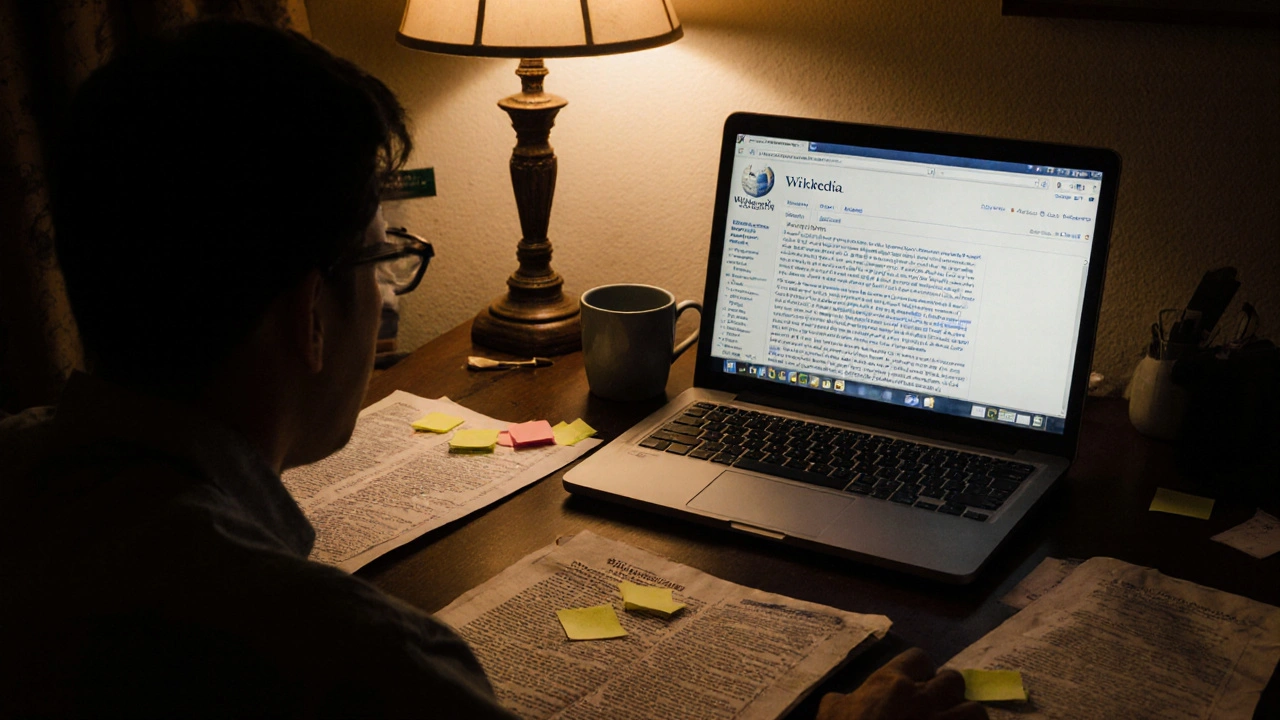
What Makes a Source Reliable on Wikipedia?
Wikipedia doesn’t trust just any website. It has strict guidelines for what counts as a reliable source. A reliable source must be:
- Published independently (not self-published or run by the subject)
- Regularly edited or fact-checked
- Known for accuracy and journalistic standards
- Not primarily advertising or opinion
That means a local blog, a town’s official website, or a Chamber of Commerce newsletter doesn’t qualify-even if it’s accurate. A local weekly paper with a real editor? Yes. A Facebook group called “Springfield Updates”? No. Even if the Facebook group has 5,000 members and posts daily, Wikipedia editors will delete anything citing it.
This system works well in places with strong media. But it breaks down where media is weak. And that’s where misinformation creeps in. When real news sources disappear, people turn to rumors. And when Wikipedia won’t accept rumors, the truth vanishes from the record.
What Happens When Local News Disappears?
Imagine a small town in West Virginia. A local factory closes. The mayor holds a press conference. The community gathers. But the only paper that covered it shut down last year. No TV station sent a reporter. No radio station aired it. So Wikipedia doesn’t have a source to cite. The event doesn’t get added. A year later, someone researching the town’s economic decline finds nothing. The closure isn’t documented. It’s as if it never happened.
This isn’t hypothetical. In 2024, a study by the Tow Center for Digital Journalism found that 63% of Wikipedia articles about U.S. municipalities with populations under 10,000 had no news coverage from the past two years. In many cases, the last update was from 2018 or earlier. That’s not just incomplete-it’s misleading. People assume Wikipedia is current. But in small towns, it’s often a historical archive, not a living record.
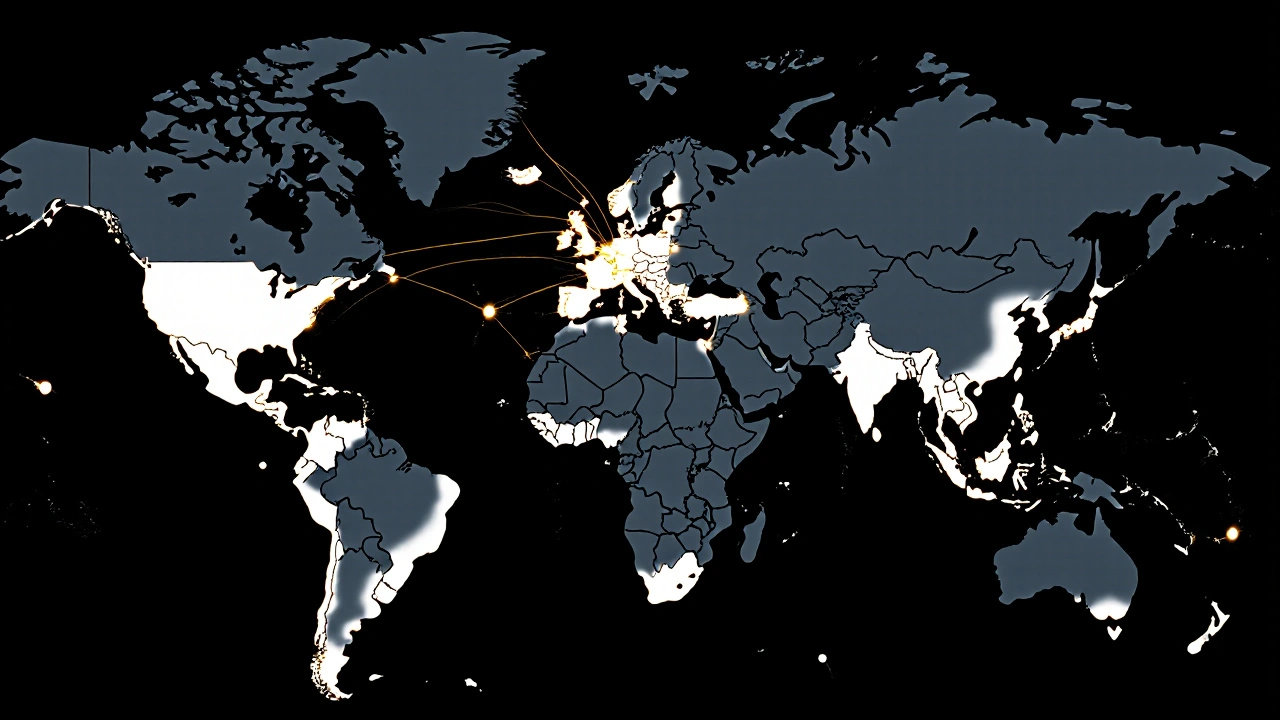
Can This Be Fixed?
Yes-but not by Wikipedia alone. Communities need to rebuild local journalism. Some towns are starting community news websites run by volunteers. Others are partnering with journalism schools. In Maine, the Local News Fund has helped launch over 30 hyperlocal sites since 2020. These outlets meet Wikipedia’s standards. And when they do, their stories start appearing on Wikipedia.
There’s also a growing movement among Wikipedia editors to accept more diverse sources in under-covered regions. In 2023, the Wikimedia Foundation updated its guidelines to allow “established community-run media” as reliable sources-if they meet transparency and editorial standards. That’s a big step. But it’s still rare. Most editors don’t know how to verify a community blog. They don’t have time to dig into who runs it or how it’s edited.
Until there’s more training and more resources, Wikipedia will keep favoring places with strong media. And that means the digital record of the world will continue to reflect the same inequalities we see in the real world.
What You Can Do
If you care about your town’s presence on Wikipedia, here’s what you can do:
- Check your town’s Wikipedia page. Is it outdated? Missing recent events?
- Find a local news source-even if it’s a small blog or newsletter. Does it have a clear editor, a history of publishing, and contact info?
- If it meets Wikipedia’s standards, submit a well-sourced edit. Include the link to the article and explain why it’s reliable.
- Help local journalists. Support your community paper. Subscribe. Share their work. Without them, Wikipedia can’t help you.
Wikipedia doesn’t create news. It reflects it. If your community’s stories aren’t being told, they won’t show up online. The fix isn’t technical-it’s civic. It’s about valuing local journalism enough to keep it alive.
Can I use a local Facebook group as a source on Wikipedia?
No. Facebook groups, even popular ones, are not considered reliable sources on Wikipedia. They lack editorial oversight, can be edited anonymously, and aren’t held to journalistic standards. Wikipedia requires sources that are independently published, regularly reviewed, and transparent about their editorial process.
Why do some small towns have no Wikipedia page at all?
Many small towns lack a Wikipedia page because they don’t meet the notability guidelines. Wikipedia requires independent, published coverage from reliable sources. If no newspaper, radio station, or credible website has written about the town, editors can’t verify its significance. It’s not about population size-it’s about documented public attention.
Are government websites reliable sources for Wikipedia?
Generally, no. Government websites are considered primary sources, not reliable ones. They’re official statements, not journalism. Wikipedia prefers third-party reporting that analyzes or verifies government claims. For example, a news article quoting a city council meeting is acceptable. The council’s own press release is not.
How often are local Wikipedia pages updated?
It depends entirely on the region. In cities with active media and volunteer editors, pages can be updated daily. In rural areas with no local news, pages may go years without changes. A 2024 study found that over half of U.S. municipal pages had no news updates in the past two years.
Does Wikipedia have a bias toward wealthy regions?
Yes. Wealthier regions have more journalists, more media outlets, and more volunteers to edit Wikipedia. That means their stories get documented. Poorer regions, even if they have rich local histories, often disappear from the record because there’s no one to write about them or cite them. This isn’t intentional-it’s structural.
